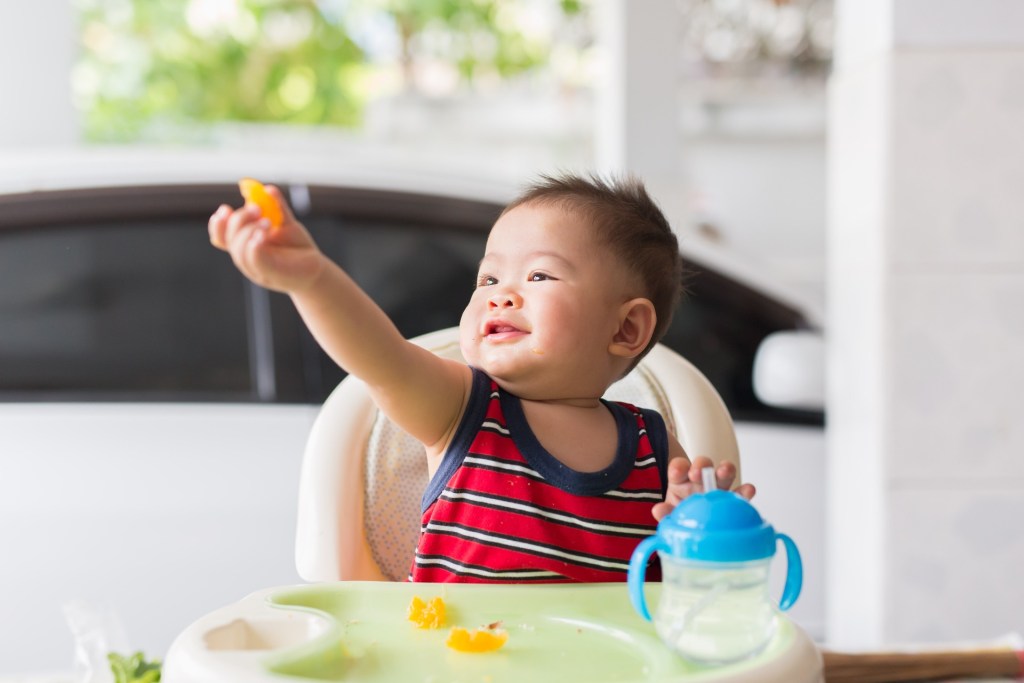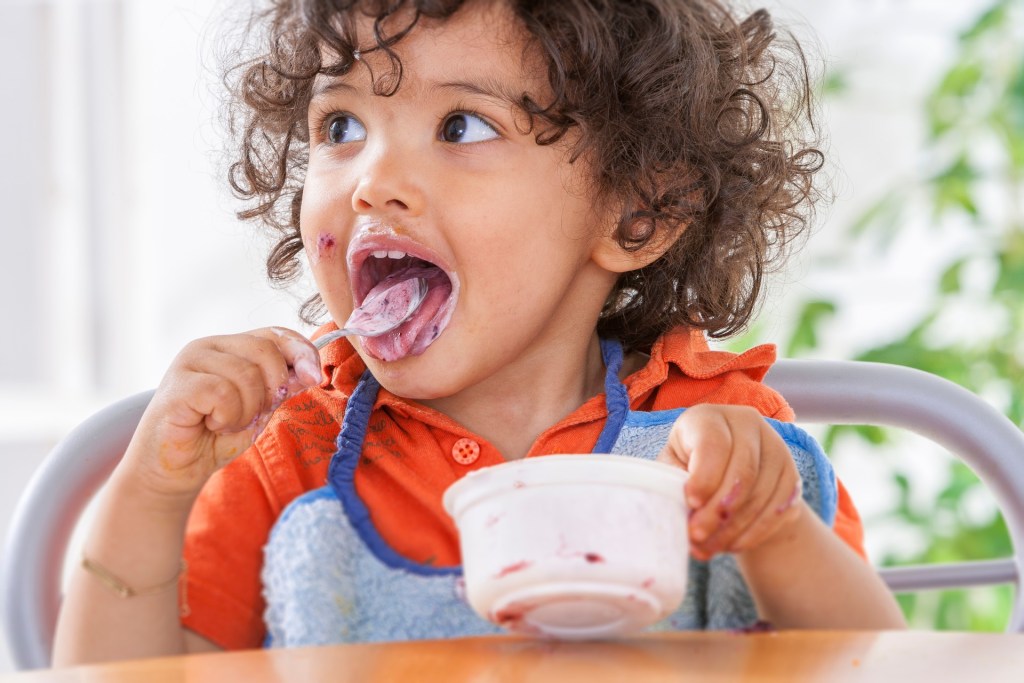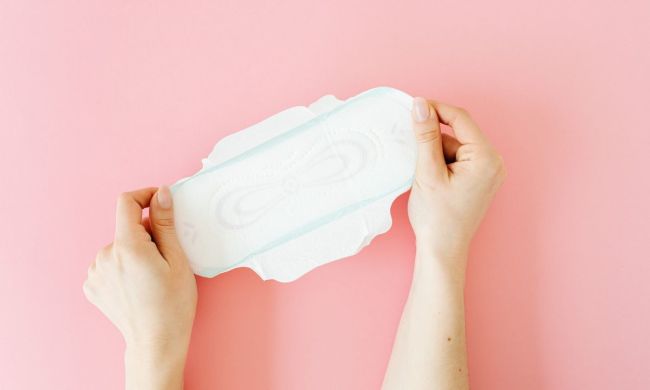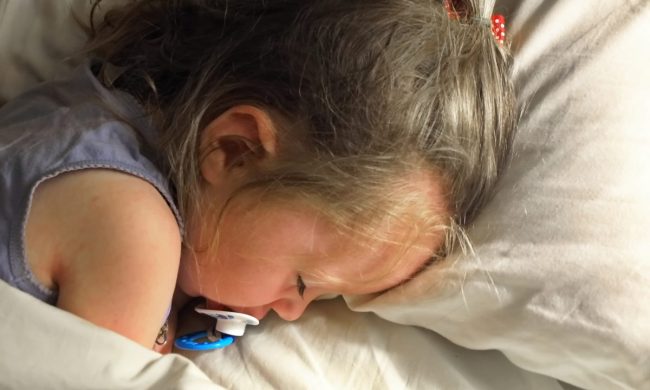Toddlers tend to be a little demanding at times, especially when it comes to meals and eating. What foods pleased them yesterday may not be the ones they want to eat today. This can make the process of preparing the family’s meals a bit more challenging for parents. But how much should a 2-year-old eat each day? And how many calories should a toddler eat each day to help them grow and develop? Do you have a picky eater on your hands, a child that is more finicky than others? We hope to answer those questions and more, clearing the air for nervous or concerned parents with picky or particular toddlers on their hands.

What do the experts say?
The best place to start, especially when it comes to little ones, is with the experts. According to Kids Health from Nemours, 2-year-olds – depending on their actual age, size, and activity levels – should be consuming between 1,000 and 1,400 calories per day. This total caloric intake is broken down throughout, usually in the form of three meals, with two to three snacks fit in-between. An example of what a typical, pediatrician-approved toddler daily meal plan looks like would be:
- Breakfast – A 6-ounce glass of milk, half a cup of fresh fruit such as bananas, berries, or melons, and a slice of toast with butter and optional jelly/honey spread.
- Mid-Morning Snack – Cheese and crackers, fruit with yogurt dip, or sliced apples and grapes.
- Lunch – a 6-ounce glass of milk, a half of a deli sandwich of your toddler’s choice (turkey, ham, sliced cheese, pepperoni, etc.), and celery and bell pepper strips with a dip such as ranch dressing or hummus.
- Mid-Afternoon Snack – A 6-ounce glass of milk or juice, applesauce or diced fruit cup, string cheese, and snack crackers
- Dinner – A 6-ounce glass of milk, 2 ounces of protein, half of a cup of rice, potato, or other starch, and a quarter of a cup of steamed veggies.

Showing concern
If you are not confident that your toddler is eating enough each day, or that their caloric intake is lacking in comparison to the standard and suggested amounts, some nutritionists and pediatricians recommend parents keep a food journal of everything their children eat during the day. The data can then be reviewed in the office during a scheduled appointment, and your child’s pediatrician can determine if your little one is taking in enough calories in their diet. Additionally, they can offer advice and input on how to encourage your child to eat more at meals, or more frequently throughout the day based on their own specific needs.
A few tips proposed by professionals include:
- If your child is experiencing low body weight, offering more frequent snacking through the day and encouraging healthy choices, such as fruits and vegetables, cheese and yogurt, healthy snacking crackers or puffed crisps, and protein snacking sticks, can add extra calories to their diet.
- Utilize favorites as often as possible to entice your child to the dining room table willingly. This can be used in both low and elevated weight situations.
- Tempt them with a “food challenge”, making a game of finishing a meal, such as the clean plate club, star charts, or other positive reinforcement techniques.
Once low weight gain — or low body weight — has been noticed by your child’s doctor, they can follow the progress over the course of time (usually a couple of weeks to months) and alter the course of the diet one-on-one with you and your child.
But what if your little one is just the opposite and is showing signs of early-onset weight gain or other weight-related concerns? The first step — much like its counterpart, should always be to consult your child’s pediatrician. They are specialized in recognizing low or abnormally elevated body weight and will work with parents to help their child achieve their own, personalized weight plan based on their health and personal development. Here are a few helpful tools to use with kiddos who may be taking in too many calories per day:
- Keeping healthy snack options stocked. Low-calorie, flavored popcorn, fresh fruits such as oranges and strawberries, yogurt-based smoothie drinks, and cauliflower cheese crackers, to name a few.
- Stick to a schedule and try not to deviate from it. Things come up, and meals on the go are sometimes necessary, but adding extra calories to your dinner from the drive-thru are bigger factors for kids struggling with excessive weight gain.
- Encourage extra activities throughout the day such as walks, bike rides, yard races, or even time spent on a trampoline. These types of recreation can help kids burn off extra calories and energy, helping them achieve their goals more quickly.

Toddler parents walk a tightrope when it comes to raising their littles. While your kids are no longer babies, they still need almost constant nurturing and attention. Kids on the go – aka toddlers that walk/run/meander/bolt — make parenting a moving target on the best of days. So, it goes without saying that parents are very in tune with their children – most especially, their eating habits. If you’ve recently picked up on extra weight or a lack of it and are wondering what exactly your little should be consuming daily, we hope to have given you a bit more clarity on the subject. Involving your child’s pediatrician, building a meal plan, and encouraging them along the way are the best ways to get answers and a plan that is tailored to your child’s needs.



